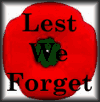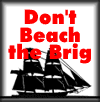CMHS Home
Conduct



|
Code of Conduct & Discipline
49th (Hertfordshire) Regiment of Foot
This Code of Conduct applies to all members of the 49th Regiment of Foot reenactment unit and any other War of 1812 interpretations under the control of the Canadian Military Heritage Society. It also applies to any individual reenactor that attends an event with the CMHS.
The Code will be enforced by the senior Non-Commissioned Officer (NCO) in attendance at all events, during the sites open hours (unless otherwise specified), at all official functions, and at all unit drill sessions. They will be enforced without bias or prejudice caused by personal feelings or rank.
The responsibility to enforce the following falls on the senior NCO present or another appointed person, but any appeals or disputes will be heard by a regimental tribunal composed of the CMHS Executive and the Unit Representative.
S.1 Paying Compliments
- All members of the regiment have a rank and should be addressed accordingly.
- When addressing a person of the officer class, he will be referred to by his rank and name, or Sir, preferably the latter.
- When a senior man is referring to a subordinate, he will refer to that man by his rank, rank and name, or last name.
- When a man is being addressed by, or addressing, a senior man of the rank of Sergeant or upwards, he will come to the position of a soldier (attention).
Salutes:
- When a soldier, unarmed, meets an officer he will cast his eyes upon that officer and raise his hand that is farthest from the officer to his cap. He will remain in this position until the officer has passed.
- The officer is not required to respond to salutes.
- This form of compliment is only given if you are in uniform and your head dress is on.
- Only officers in full uniform are to be saluted.
Colours:
- If a unit's colours pass to the front then the men Present Arms, officers salute, and the drums beat a march.
- If two regiments meet on the march, both with or both without their colours, the junior regiment will give way. It will face the direction that the opposing regiment will pass on, officers salute, men Present Arms with bayonets fixed, and the drum beats a march.
- If only one of the regiments has colours then it has the right of way, regardless of seniority.
Note:
- Compliments apply to all officers and all colours in any army that is allied to the King's forces.
- Compliments are to be extended to the officers and colours of the other reenactment groups as well.
S.2 Dress and Deportment
Uniform
- The uniform in total will be kept in neat order and clean.
- Missing buttons and missing or loose lace will be repaired at the earliest convenience.
- All dirt, grass, etc. will be brushed out of the coat and wool pants as soon as practical.
- All leather will be whitened or blackened accordingly.
- Gaitors will be free of dirt and blackened.
- Boots will be free of dirt and blackened.
- When dressed down, forage caps and neck stocks will be worn, unless otherwise permitted.
- No soiled clothing will be worn at parades or church parades, or inspections.
- Shakos will be clean and brass will shine.
- If sent on an official task the regimental coat will be worn.
- If on sentry duty, the full regimental uniform will be worn, including packs, unless otherwise ordered.
- There will not be unauthorized additions to the uniform (badges, medals, etc.). Note: Waterloo Medals may be worn at mess dinners and civilian parades.
Hair
- Hair should be kept short, but not policeman short. No facial hair other than side-whiskers. British regulations state that the soldier was to shave on Wednesday and Sunday, minimum. You should be shaved on the Sunday morning of an event.
Glasses
- If you must wear glasses to sorrect your vision and cannot wear contact lenses, then you should have your prescription fitted to period style frames as soon as possible.
Jewellery
- Soldier, laundresses, wives, etc ... no wristwatches. It is doubtful that British soldiers wore earrings. It is also doubtful that expensive rings, bracelets, or necklaces were worn. Wedding bands will be overlooked. Any jewellery should be carefully researched and approved.
Smoking
- Appropriate smoking materials only; proper documentation is definitely required, (photocopies of your research will be accepted, your word will not). If you must smoke your custom cuts, do it very discreetly. There will be no smoking of anything listed in the Narcotics Control Act. Cigarette butts will not be dropped on the ground, but discreetly disposed of in the garbage or fire.
Drill
- The drill of the British Army was regulated by a standard manual published by the Horse Guards and used by the Sergeant Majors of all regiments. However, each Sgt. Major interpreted the manual a little differently than the next. The 49th performs the drill as established by the officer and the Sergeant of the regiment. Other units may differ in their interpretation.
S.3 Tents
- The interior of tents will not be subject to inspection unless appropriate circumstances merit such a search.
- A limited amount of period personal material will be permitted outside of your tent when not in use. No clutter.
- Cooking materials are the exception.
- All modern material must be stored inside your tent during an event's operational hours (when the public is present).
S.4 Weapons
Muskets
- Muskets will be kept in clean and operational condition.
- Flash guards and hammer stalls are mandatory.
- At events, locks will be kept clean and brass will be shone.
- No loaded or primed musket is permitted in the tent line.
- Any muskets in the tent line must be in your possession, in your tent, or stacked with an attendant.
- No musket is to be left at full or half cock.
- No musket will be handled by a tourist when loaded and/or bayonet fixed. You must be present with the tourist if he/she is holding the musket.
Note: A person will be appointed at all times to act as security in the tent line and to watch over any stacked arms.
Black Powder
- No cartridge boxes containing powder will be left out of your possession, unless properly stored in you tent.
- No live rounds are to be in your possession or stored in your gear.
- No black powder ill be given to the public.
- No bulk powder is to be taken out of your tent without authorization.
Edged Weapons
- No edged weapon will be handed to the public withoutstrict supervision.
- All edged weapons must have a sturdy sheath or scabbard.
- Edged weapons will only be used for their intended function. They are not toys.
- Bayonets may be used for functional purposes (ie. supporting a spit, candle older, etc.)
S.5 Personality Conflicts
Internal:
- Personality conflicts between members that interfere with the operation of the unit will be settled by a tribunal.
External:
- Personality conflicts involving other units that interfere with the units' relationship with each other are to be brought to the attention of the CMHS Executive Branch.
S.6 Talking in Ranks
- If you need to speak out in the ranks, then get the attention of the instructor as instructed.
- There will be no talking in the ranks while at attention or at ease. While standing "easy" you may speak, but keep it to a minimum.
- If being addressed by a Sergeant or higher rank, then you will come to the position of a soldier. When finished you will return to the position of "at ease".
- If hailed by an officer or Sergeant, you will move with a sense of urgency to that person's location and come to the position of a soldier.
S.7 Disciplinary Action
- All of these offences will result in disciplinary action.
- If issued a fine, the amount to be paid will be $1.00 per offence. This can be increased if the situation merits (habitual offenders, etc.)
- An increased fine can only be issued by a tribunal.
- Alternate disciplinary action can only be assigned by a tribunal with both the offender and the tribunal in agreement.
Black Powder
- All offences involving ck powder or were personal injury or some act of criminality has taken place will go before the tribunal.
Enforcement:
- The enforcement of this code is the responsibility of the regimental tribunal.
- The senior NCO at the event acts as an agent for the tribunal.
- Any infraction committed by the senior NCO will be brought to this attention by the next senior man.
- The senior NCO is obligated to record any of his infractions reported.
- Any attempt to set up a man will result in a $5.00 fine.
- Offences committed by officers are subject to the same penalty structure as the ranks.
- Any man that refuses to pay a fine or complete an alternate punishment that is not under appeal will stand before the tribunal.
- The senior NCO is responsible for the maintenance of a defaulter's log under the supervision of the commanding officer.
- Accounts are due to be paid at the last drill of the month and is the man's individual responsibility to ensure that his account is settled.
- All fines will be submitted to the 49th Regiment's account for equipment purchases, etc.
|


